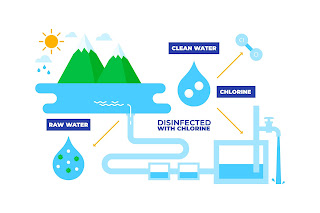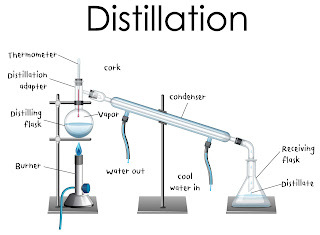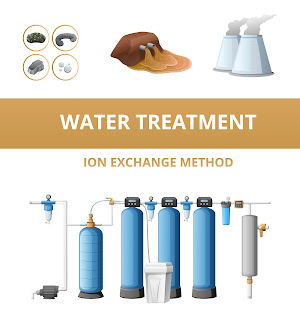The Importance of Water Purification: Ensuring Clean and Safe Drinking Water
General discursion about Water purification
Clean and safe drinking water is crucial for our health and happiness. However, with increasing pollution and contamination concerns, the need for potential water purification methods has become more urgent than ever. Here, I will analyze the significance of water purification, its impact on human health, and a number of methods used to achieve clean and safe drinking water. By understanding the importance of water purification, we can take measure to ensure availability of high-quality drinking water for ourselves and next generations.
Pic: Water Purification System, Credit:freepikTable of Contents
Why Water Purification is essential?
Polluted Water poses great risks to both human health and the environment. Contaminants such as bacteria, viruses, chemicals, heavy metals, and sediments can make their way into our water sources, compromising their safety. Consuming contaminated water can lead to various waterborne diseases and prolonged health effects. On top of that, polluted water negatively impacts aquatic ecosystems and biodiversity.
What is Water Purification?
Water purification is the process of removing contaminants and impurities from water, making it suitable for consumption. There are a lot of procedures and technologies used in water purification. Examples included Filtration, disinfection, distillation, and ion exchange. Each method targets specific pollutants and implements different mechanisms to ensure clean and safe drinking water.
Common Water Purification Methods
Filtration Systems:
- Activated Carbon Filters: These filters remove chlorine, organic compounds, and unpleasant odors and tastes from water.
- Reverse Osmosis Filters: Using a semipermeable membrane, reverse osmosis filters effectively remove contaminants such as bacteria, viruses, heavy metals, and dissolved solids. Pic:Reverse osmosis water purification system, photo redit: freepik
- Ceramic Filters: These filters are capable of removing bacteria, protozoa, sediments, and some chemicals, providing an additional layer of purification.
Disinfection Techniques:
- Chlorination: Chlorine is mixed with water in a permitted ratio to kill microbes like bacteria and viruses, making it safe for consumption. Pic:Disinfected by chlorination, Photo credit : freepik.
- UV (Ultraviolet) Disinfection: This method utilizes UV light to deactivate harmful microorganisms by degradation their DNA.
- Ozone Treatment: Ozone is a potent oxidant that destroys bacteria, viruses, and organic pollutants, boost water quality.
Distillation:
Pic: water Distillation, Photo Credit:brgfx on freepikDistillation involves heating water to produce steam, which is then collected and condensed to remove contamination. This process effectively removes contaminants such as heavy metals, minerals, and bacteria.
Ion Exchange:
Ion exchange is generally used for water softening. It engages replacing calcium and magnesium ions responsible for water hardness with sodium ions, minimizing the hardness of water.
Pic:Ion Exchange method of water purification, Photo credit: freepikFactors to Consider When Choosing a Water Purification System
When selecting a water purification system, many factors should be accounted. These include conducting water quality tests to identify specific contaminants, understanding the flow rate and capacity requirements, assessing maintenance needs, and considering the long-term renewable and worth-while of the chosen method.
Ensuring Water Safety in Various Settings
Water purification is mandatory in different settings:- Residential Water Purification: Choosing desire purification systems for domestic application ensures access to clean drinking water for household members.
- Commercial and Industrial Applications: Businesses require tailored water purification solutions to achieve their specific needs and comply with regulatory standards.
- Emergency Situations and Outdoor Activities: Portable water purification methods offer a convenient way to purify water during emergencies and outdoor adventures.
Conclusion
Access to clean and safe drinking water is important for maintaining good health. Water purification plays a vital role in removing pollutants and ensures that the water is safe for drink.







Good job
ReplyDeleteThanks
ReplyDeleteSwjal Process Pvt. Ltd. is a leading manufacturer of pure water generation plants in India, specializing in advanced solutions for pharmaceutical, biotech, and industrial applications. With a commitment to innovation and quality, we deliver systems that meet stringent global standards.
ReplyDeleteSwjal Process
An essential topic—clean and safe drinking water is the foundation of public health. With increasing industrialization and environmental challenges, advanced water purification technologies like Reverse Osmosis (RO), Ultrafiltration (UF), and Electrodeionization (EDI) are playing a vital role in delivering high-quality water. Investing in modern purification systems is not just about safety—it’s a commitment to sustainability and long-term well-being. Thanks for highlighting this important issue!
ReplyDelete